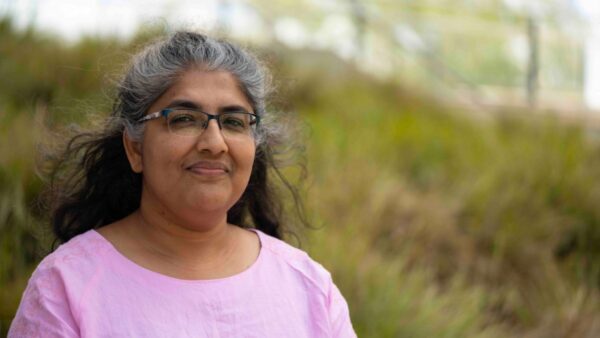Humanitarian, Doctor, Researcher, & “Pandemic Whisperer”

Source:-rsph.anu.edu.au
The COVID-19 pandemic has brought epidemiologists into the spotlight as the experts we need to rely on right now. But it is the decades of experience leading up to this crisis that make their advice so valuable. Few people have more experience than ANU Alumna of the Year – Associate Professor Kamalini Lokuge.
“I have spent most of the last 25 years working on controlling multiple epidemics such as Ebola, Lassa fever and avian flu. I know that we can control them by meaningful partnership with communities and using evidence,” says Kamalini.
Her career began as a doctor in conflict and disaster settings such as Afghanistan and South Sudan. It was these war-torn experiences that gave Kamalini insight into the challenges that not only the healthcare systems face, but the people who need them.
“To really help my patients, I needed to understand the context of their lives, how their family lived, what was affecting their community, that’s why I went on to study public health,” says Kamalini.
This has been her mission for the last 25 years, to empower communities to improve their health and wellbeing.
To this end, Kamalini has worked on the ground with local communities and partners to control Ebola outbreaks in West Africa, reduce maternal mortality in countries such as Sierra Leone, develop locally-led programs to combat family and gender-based violence in Papua New Guinea, Sri Lanka, and more.
Her key to success? Listening and learning from those who live the problem. Kamalini knows that those who live the experience – mothers, children, health workers and teachers – are best placed to identify gaps and deliver solutions.
Right now the health emergency Kamalini is responding to is not on the other side of the world, however. COVID-19 has knocked on Australia’s door, and once again Kamalini has approached it through the lens of social and health inequities.
“You can see the treatment of COVID-19 as separate from other health issues, or you can look for synergies. If every mother could safely deliver their child, for example, then we would have a system that could cope with challenges like COVID-19,” says Kamalini.
“The problems with equity and equality are what we need to be conscious of.”
Kamalini and her team’s research on the epidemiology of COVID-19 transmission and control supported Commonwealth, State and Territory policies, including aged and health care worker policies, and strengthened engagement and trust with disadvantaged groups. This work was critical to ending Victoria’s 2020 resurgence of COVID-19 and has informed Australia’s response to subsequent COVID-19 outbreaks. Kamalini also coined new terms used in contact tracing – upstream and downstream – now widely used and accepted.
Professor Emily Banks says Kamalini is one of the few people in Australia that has repeatedly controlled high-risk pathogen outbreaks.
“It’s not just an academic knowledge of viruses. Kamalini is one of the few people in Australia who time and again has been on the ground ending outbreaks. She is the pandemic whisperer,” says Emily.
Congratulations, Kamalini, on being awarded ANU Alumna of the Year. We appreciate and thank you for your contribution to the health of Australians and communities around the world.
The ANU is proud to have Kamalini lead the University’s Humanitarian Health Research Initiative (HHRI). The HHRI develops practice-driven, evidence-based solutions to the world’s most complex humanitarian crises. They help those affected by marginalisation, poverty, conflict, and communicable diseases.
Help Kamalini and her team help those in need with a philanthropic donation. Please GIVE NOW, or contact claudia.santangelo@anu.edu.au to learn more.
*Kamalini is an alumna of the ANU Master of International Law, and PhD in Epidemiology and Population Health.







